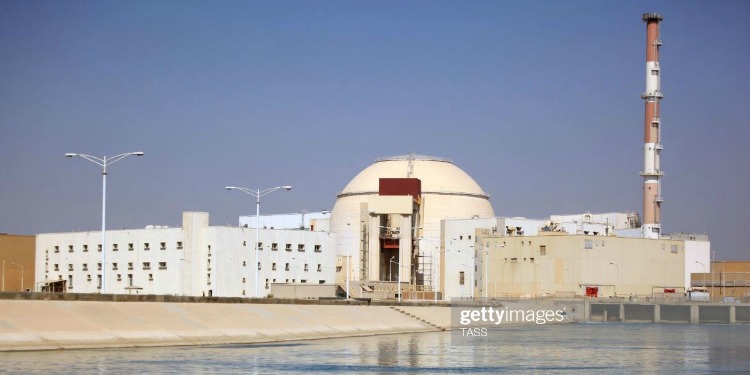Iran Very Close to Nuclear Threshold
Stand for Israel | June 25, 2019

Even as it acts aggressively around the Middle East and across the globe, Iran is objecting to increased sanctions due to its behavior. But the Iranian nuclear program is still the biggest threat to the free world. Writing at JNS, retired IDF nuclear expert Raphael Ofek says that the Islamic Republic could produce nuclear weapons within six to eight months:
It is reasonable to assume that if Iran breaks the nuclear agreement, it will—as soon as possible—restart all the centrifuges installed at Natanz and Fordow, as well as the advanced IR6 and IR8 model centrifuges that were developed in recent years. (According to Iranian experts, the enrichment capacity of the IR8 is 20 times greater than that of the IR1.)
Based on data published by the IAEA, it can be roughly estimated that if Iran breaks the nuclear deal, it will be able to enrich uranium to about 20 percent at the rate of about 450 kilograms per year. It would then enrich the 20 percent uranium to 90 percent (the level of enrichment required to produce a nuclear weapon core) in the quantity of 200 to 250 kilograms—sufficient to produce more than 10 nuclear bombs a year.
Based on the assumption that the time needed for Iran to restart a full-scale uranium enrichment project is three to four months, and adding a month or two for the production of enriched uranium cores in the form of hollow hemispheres, it can be estimated that within half a year Iran may have at least enough fissile material for one nuclear weapon core.
The IAEA has tried to monitor Iran’s facilities associated with the production or use of nuclear materials, in accordance with the Treaty on the Non-Proliferation of Nuclear Weapons (NPT), but without much success. Most of the information gathered by the IAEA in this connection was received from Western intelligence services.
The most significant breakthrough in exposing the Iranian nuclear program was Israel’s Iranian archive operation. Documents in that archive indicate that as long ago as 2003 and 2004, Iran made great progress in its nuclear effort, far beyond what the Western intelligence services and the IAEA estimated at the time. Had the information in the archive been exposed before the signing of the JCPOA nuclear deal in 2015, a better agreement would have been reached.
The Iranian nuclear archive operation and a comprehensive description of its contents were revealed by Israeli Prime Minister Benjamin Netanyahu on April 30, 2018…
